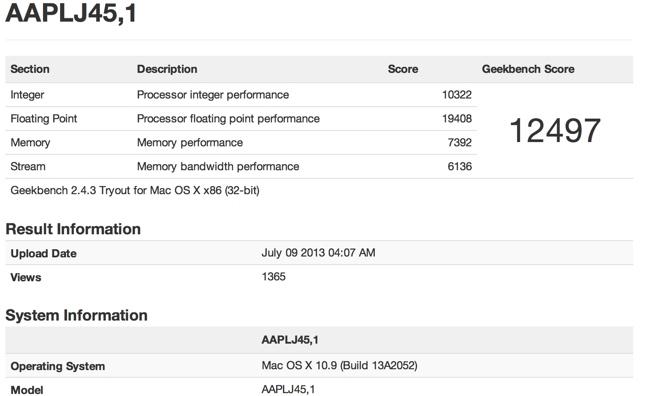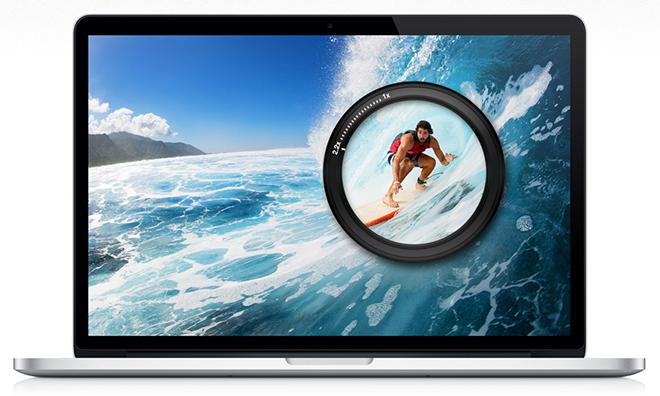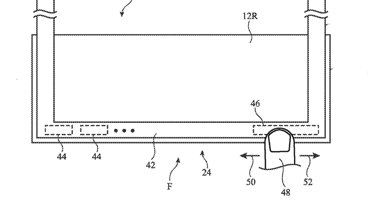A system appearing to be Apple's next-generation 15-inch MacBook Pro, featuring a quad-core Haswell processor clocked at 2.4 gigahertz, has appeared in an online benchmark test.
The Geekbench result for a machine identified as "AAPLJ45,1" was spotted on Tuesday by MacRumors. The test machine features 16 gigabytes of RAM and was spotted running OS X 10.9 Mavericks Build 13A2052.
The machine earned a Geekbench score of 12,497, which is comparable with current-generation 15-inch MacBook Pro models. It's likely that any MacBook Pros with Haswell would see improvements in battery life rather than horsepower, as already seen in the new Haswell-equipped MacBook Air models.
The CPU found in the assumed pre-release MacBook Pro is an Intel Core i7-4950HQ. Intel's latest-generation Core i7 mobile chips feature Iris 5200 graphics.
The Iris moniker launched by Intel this year is a way for the chipmaker to differentiate its premium integrated graphics from the traditional "Intel HD" solution. Iris 5200 is Intel's top-of-the-line GPU option, intended to compete with Nvidia's GeForce GT 650M, a discrete GPU currently found in the 15-inch Retina MacBook Pro.
Last month, Geekbench tests also revealed what appears to be a next-generation 13-inch MacBook Pro with Intel's Haswell. That system, which featured a Core i5-4258U processor clocked at 2.4 gigahertz, earned a score of 7,140.
 AppleInsider Staff
AppleInsider Staff





-xl-m.jpg)



 Amber Neely
Amber Neely
 William Gallagher
William Gallagher
 Malcolm Owen
Malcolm Owen

 Mike Wuerthele
Mike Wuerthele


 Thomas Sibilly
Thomas Sibilly








50 Comments
I don't think I ever realized before that the i7 is 75% more powerful than the i5.
Nice. My old MacBook Pro (2009) 3.06 2-core was 4717. New one is almost three times as quick. My MacPro (2010) 3.33 6-core was 15713. Not quite a MacPro but close. So when?
I'm not sure what the implication of this is. It is going to have a GT650m class integrated GPU along with a discrete unit? or... No. No that couldn't be. We won't think of such awful things.
I don't think I ever realized before that the i7 is 75% more powerful than the i5.
For certain types of apps it's the preferred processor, but if you aren't running those types of apps, then you might not see that big of a difference and it might be better to spend the money on some other feature like addition SSD or a Fusion drive. but if you have the money and run certain apps that are heavy CPU, then go for it.
If you do lots of video editing, trancoding, a very heavy Photoshop work, you'll benefit. If not, and you are general user, spend the money elsewhere unless you have the extra cash.
Thinking about it for a few minutes... there's no way they'd drop the dGPU. Not yet. But that might be in the cards in the not-so-distant future.